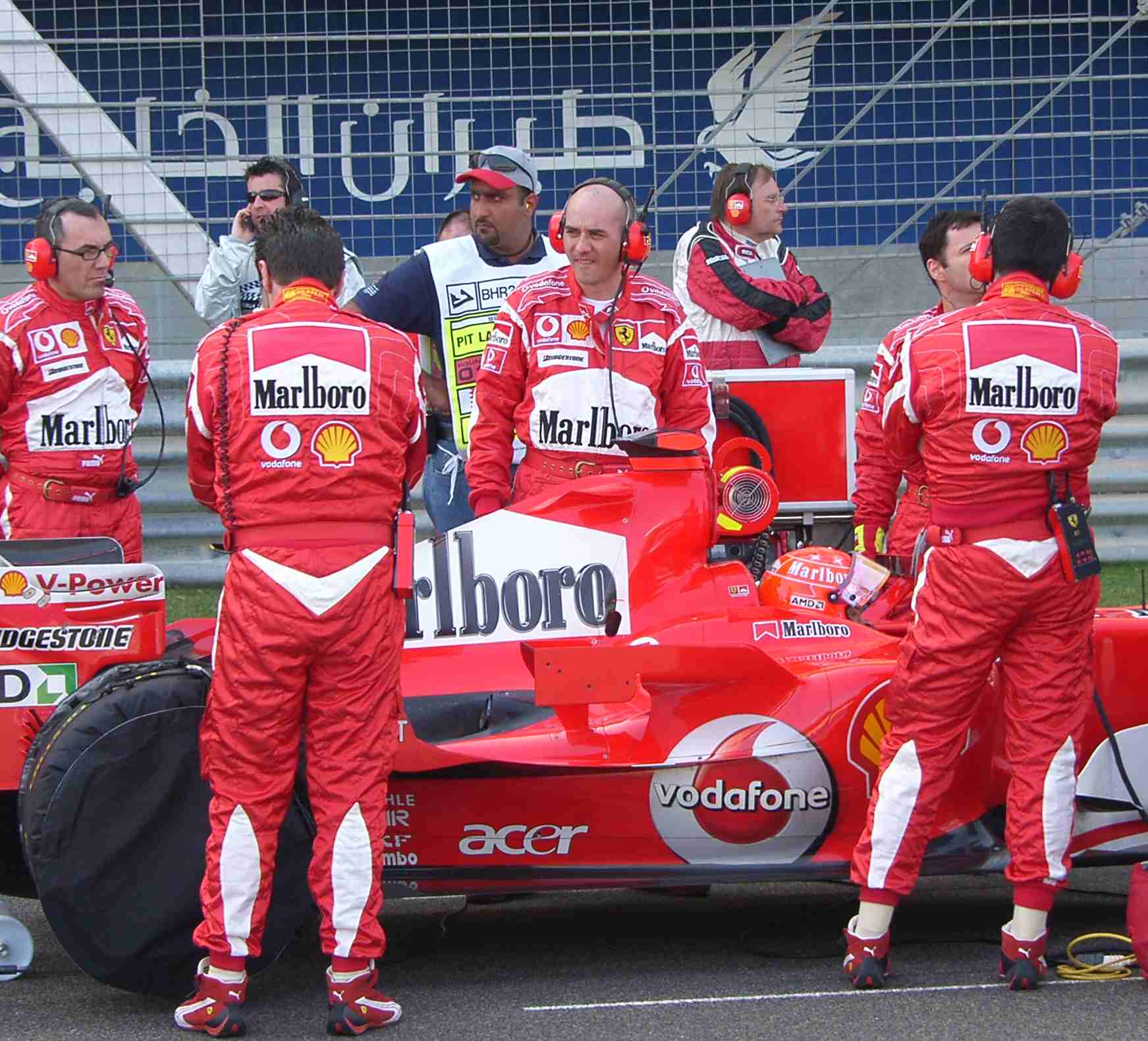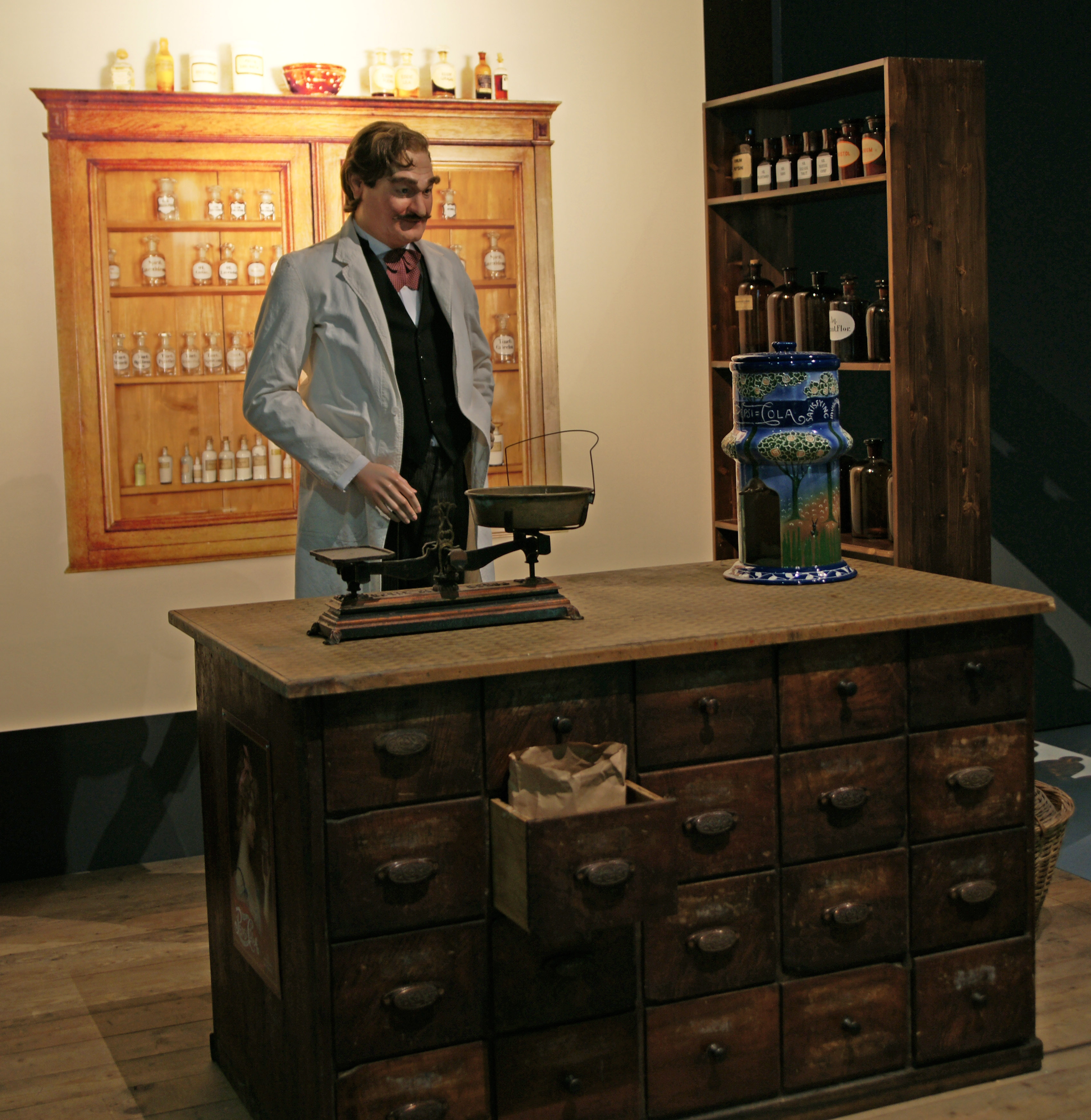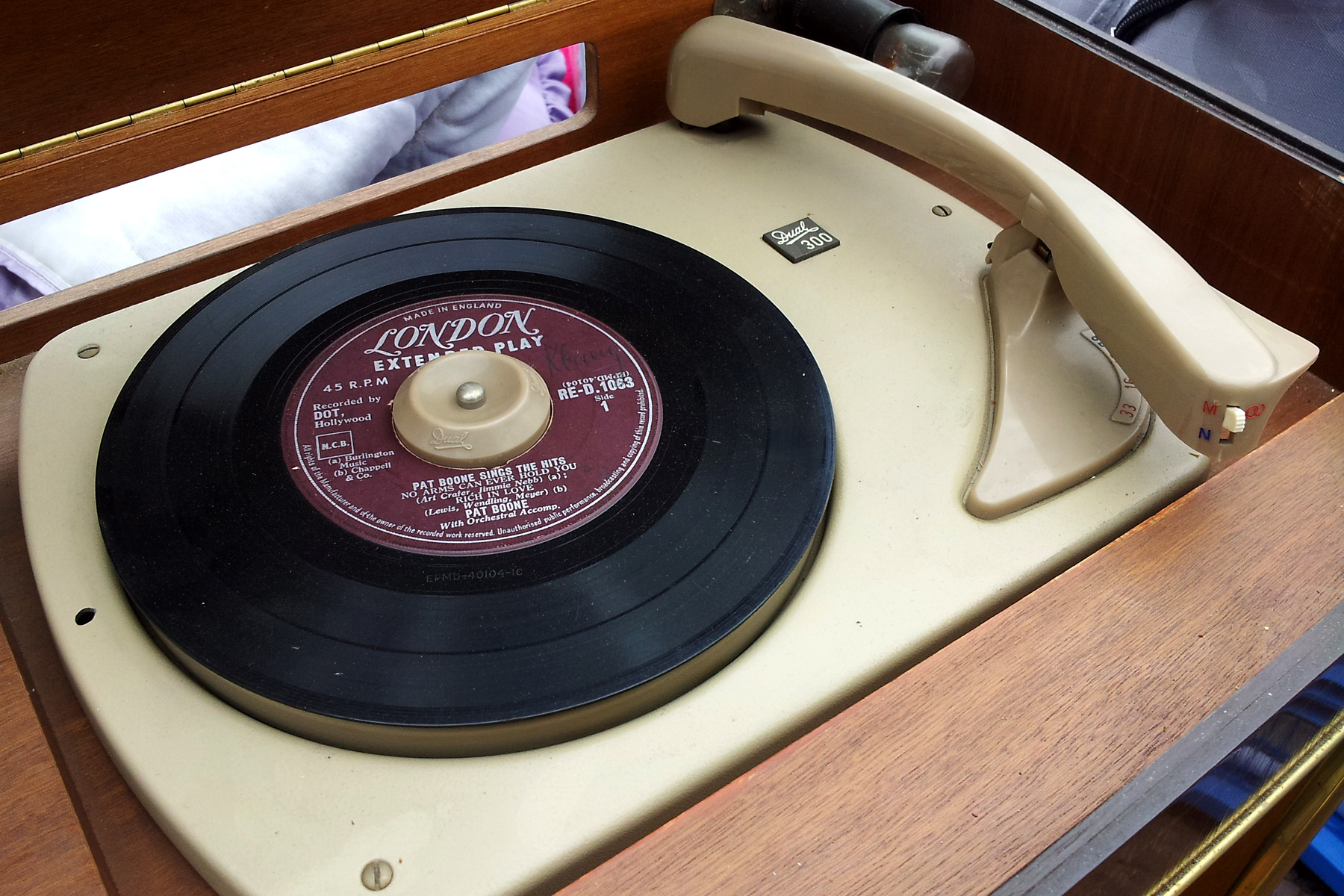|
Mákina
Mákina is a subgenre of hardcore techno, originating in Spain. Similar to UK hardcore, it includes elements of bouncy techno and hard trance, it also incorporates influence from Eurodance, and the tempo ranges from 150 to 180 BPM. History Early 1990s: Origins Dance music in Spain became prominent in 1988 with the rise of acid house. Mákina followed this trend and has its origins in the early 1990s in Valencia, Spain. Derived from another style called bakalao, the local name given to an association of electronic dance music played together with pop and rock tunes in Valencian clubs in the second half of the 1980s. Mid-1990s: Breakthrough and success The genre gained prominence in 1991 when Spanish producer Chimo Bayo released his single, " Así me gusta a mí". The song was a success throughout Europe and the genre soon gained prominence. The genre became extremely popular throughout Spain from 1995 to 1997, as many mákina-oriented singles reached number one on the S ... [...More Info...] [...Related Items...] OR: [Wikipedia] [Google] [Baidu] |
EX-3
EX-3 was a Spanish mákina group composed of David Amo, Alex Castellano, and Julio Navas. They are known for being one of the most representative groups of the 90's Spanish "Mákina" phenomenon, at the time when this genre crossed over from dance clubs to the pop music Pop music is a genre of popular music that originated in its modern form during the mid-1950s in the United States and the United Kingdom.S. Frith, W. Straw, and J. Street, eds, ''iarchive:cambridgecompani00frit, The Cambridge Companion to Pop ... arena. Popular songs by EX-3 include "Ex-P-Cial", "Extres", and "Extres-A-2". Musical career The group experienced success throughout Spain from 1995 to 1997, when many of their singles reached the top 10 on the Spanish Singles Chart. Discography Singles References {{DEFAULTSORT:EX-3 Musical groups established in 1995 Spanish dance music groups Spanish electronic music groups Spanish Eurodance groups Spanish electronic dance music DJs ... [...More Info...] [...Related Items...] OR: [Wikipedia] [Google] [Baidu] |
Así Me Gusta A Mí
"Así me gusta a mí" () is a song recorded by Chimo Bayo. Recorded in Rager Studio, the single was released on 24 June 1991. The song, which became a generational icon of the so-called "" in Spain, also earned Bayo international fame, reaching number one in Israel and Japan. Sales surpassed 1 million in more than 40 countries. In addition to the Spanish-language lyrics, featuring a play on words on ecstasy, non-lexical vocables such as "¡Hoo! ¡Hoo ha! ¡Hea hoo! Chiquitan chiquitan tan tan…" are uttered throughout the song. It was produced by Germán Bou. Chimo Bayo eventually released a wine label Wine labels are important sources of information for consumers since they tell the type and origin of the wine. The label is often the only resource a buyer has for evaluating the wine before purchasing it. Certain information is ordinarily inclu ... named "Hu-Há" ('Hoo Ha'), after the non-lexical vocable. References 1991 songs Songs in Spanish {{1990s-song-stub ... [...More Info...] [...Related Items...] OR: [Wikipedia] [Google] [Baidu] |
Happy Hardcore
Happy hardcore, also known as 4-beat or happycore, is a subgenre of hardcore dance music or " hard dance". It emerged both from the UK breakbeat hardcore rave scene, and Belgian, German and Dutch hardcore techno scenes in the early 1990s. What makes happy hardcore stand apart from gabber is that happy hardcore tends to have breakbeats running alongside the 4/4 kick drum. History Origins The breakbeat hardcore rave scene was beginning to fragment by late 1992 into a number of subsequent breakbeat-based genres: darkcore (tracks embracing dark-themed samples and stabs), hardcore jungle (reggae basslines and influences became prominent), and 4-beat also known as "happy hardcore" where piano rolls and uplifting vocals were still central to the sound. DJs such as Slipmatt, DJ Sy, DJ Seduction, Wishdokta, DJ Dougal, and DJ Vibes continued to play and put out music of this nature throughout 1993/94 – notably Slipmatt through the SMD releases, ''Wishdokta'' as 'Naughty N ... [...More Info...] [...Related Items...] OR: [Wikipedia] [Google] [Baidu] |
Rock Music
Rock is a Music genre, genre of popular music that originated in the United States as "rock and roll" in the late 1940s and early 1950s, developing into a range of styles from the mid-1960s, primarily in the United States and the United Kingdom. It has its roots in rock and roll, a style that drew from the black musical genres of blues and rhythm and blues, as well as from country music. Rock also drew strongly from genres such as electric blues and folk music, folk, and incorporated influences from jazz and other styles. Rock is typically centered on the electric guitar, usually as part of a rock group with electric bass guitar, drum kit, drums, and one or more singers. Usually, rock is song-based music with a Time signature, time signature and using a verse–chorus form; however, the genre has become extremely diverse. Like pop music, lyrics often stress romantic love but also address a wide variety of other themes that are frequently social or political. Rock was the most p ... [...More Info...] [...Related Items...] OR: [Wikipedia] [Google] [Baidu] |
North East England
North East England, commonly referred to simply as the North East within England, is one of nine official regions of England. It consists of County DurhamNorthumberland, , Northumberland, Tyne and Wear and part of northern North Yorkshire. It is the least-populated region of England: home to 2.6 million residents in 2022. The largest settlements are Newcastle upon Tyne, Middlesbrough, Sunderland, Gateshead, Darlington, Hartlepool and Durham, England, Durham. The North East is covered by two mayoral combined authorities, North East Combined Authority and Tees Valley Combined Authority. It is one of three regions, the other two being North West England and Yorkshire and the Humber, that make up Northern England. History The region's historic importance is displayed by Northumberland's ancient castles, the two World Heritage Sites of Durham Cathedral and Durham Castle, and Hadrian's Wall, one of the frontiers of the Roman Empire. In fact, Roman archaeology can be found widely ... [...More Info...] [...Related Items...] OR: [Wikipedia] [Google] [Baidu] |
Jimmy Fallon
James Thomas Fallon (born September 19, 1974) is an Americans, American comedian, television host, actor, singer, writer, and producer. Best known for his work in television, Fallon's breakthrough came during his tenure as a cast member on the NBC sketch comedy series ''Saturday Night Live'' from 1998 to 2004. He was the host of the late-night talk show ''Late Night with Jimmy Fallon'' from 2009 to 2014 and became the anchor of ''The Tonight Show Starring Jimmy Fallon'' following his departure from ''Late Night''. Fallon grew up with a love of comedy and music, moving to Los Angeles when he turned 21 to pursue stand-up comedy. He joined ''Saturday Night Live'' as a cast member in 1998, fulfilling a lifelong dream. During his six years on ''SNL'', Fallon co-hosted the program's ''Weekend Update'' segment. He left the show in 2004 to star in films such as ''Taxi (2004 film), Taxi'' (2004) and ''Fever Pitch (2005 film), Fever Pitch'' (2005). Following his film career, Fallon retur ... [...More Info...] [...Related Items...] OR: [Wikipedia] [Google] [Baidu] |
Television Advertisement
A television advertisement (also called a commercial, spot, break, advert, or ad) is a span of television programming produced and paid for by an organization. It conveys a message promoting, and aiming to market, a product, service or idea. advertising, Advertisers and marketing, marketers may refer to television commercials as TVCs. Advertising revenue provides a significant portion of the funding for most privately owned television networks. During the 2010s, the number of commercials has grown steadily, though the length of each commercial has diminished. Advertisements of this type have promoted a wide variety of goods, services, and ideas ever since the early days of the history of television. The viewership of television programming, as measured by companies such as Nielsen Media Research in the United States, or Broadcasters' Audience Research Board, BARB in the UK, is often used as a metric for television advertisement placement, and consequently, for the rates which ... [...More Info...] [...Related Items...] OR: [Wikipedia] [Google] [Baidu] |
Pepsi
Pepsi is a Carbonated water, carbonated soft drink with a cola flavor, manufactured by PepsiCo which serves as its flagship product. In 2023, Pepsi was the second most valuable soft drink brand worldwide behind Coca-Cola; the two share a long-standing rivalry in what has been called the "cola wars". Pepsi, originally created in 1893 by Caleb Bradham and named "Brad's Drink," was first sold in his drugstore in New Bern, North Carolina. Renamed Pepsi-Cola in 1898 due to its supposed digestive benefits, it was shortened to Pepsi in 1961. The beverage's formula initially included sugar and vanilla but not pepsin, despite speculation on the origin of its name. Early on, Pepsi struggled with financial stability, going bankrupt in 1923 but was subsequently purchased and revived by Charles Guth, who reformulated the syrup. Pepsi gained popularity with the introduction of a 12-ounce bottle during the Great Depression and clever marketing strategies like the "Nickel, Nickel" jingle, dou ... [...More Info...] [...Related Items...] OR: [Wikipedia] [Google] [Baidu] |
Streamline (song)
"Streamline" is a song composed by Spanish makina group Newton. It was released in 1994 as a single in Spain. In 1996, it was released in France, reaching number 30 on their national chart. In 2006, the song was featured in a Pepsi commercial featuring Jimmy Fallon James Thomas Fallon (born September 19, 1974) is an Americans, American comedian, television host, actor, singer, writer, and producer. Best known for his work in television, Fallon's breakthrough came during his tenure as a cast member on the ..., leading to some fame in the United States. The original length of the song was 5:05, but was shortened to fit the 30-second commercial. SPG Music re-released the song on July 10, 2006. Track listing #"Streamline (Lips version)" – 5:05 #"Streamline (Lipspace)" – 4:37 #"Streamline (Voice & Pianopella)" – 5:05 Charts Notes External linksNewton - Streamline- Discogs reference Electronic songs 1994 songs {{1990s-electronic-song-stub ... [...More Info...] [...Related Items...] OR: [Wikipedia] [Google] [Baidu] |
United States
The United States of America (USA), also known as the United States (U.S.) or America, is a country primarily located in North America. It is a federal republic of 50 U.S. state, states and a federal capital district, Washington, D.C. The 48 contiguous states border Canada to the north and Mexico to the south, with the semi-exclave of Alaska in the northwest and the archipelago of Hawaii in the Pacific Ocean. The United States asserts sovereignty over five Territories of the United States, major island territories and United States Minor Outlying Islands, various uninhabited islands in Oceania and the Caribbean. It is a megadiverse country, with the world's List of countries and dependencies by area, third-largest land area and List of countries and dependencies by population, third-largest population, exceeding 340 million. Its three Metropolitan statistical areas by population, largest metropolitan areas are New York metropolitan area, New York, Greater Los Angeles, Los Angel ... [...More Info...] [...Related Items...] OR: [Wikipedia] [Google] [Baidu] |
Spanish Singles Chart
Spanish might refer to: * Items from or related to Spain: **Spaniards are a nation and ethnic group indigenous to Spain **Spanish language, spoken in Spain and many countries in the Americas **Spanish cuisine ** Spanish history **Spanish culture **Languages of Spain, the various languages in Spain Other places * Spanish, Ontario, Canada * Spanish River (other), the name of several rivers * Spanish Town, Jamaica Other uses * John J. Spanish (1922–2019), American politician * "Spanish" (song), a single by Craig David, 2003 See also * * * Español (other) * Spain (other) * España (other) * Espanola (other) * Hispania, the Roman and Greek name for the Iberian Peninsula * Hispanic, the people, nations, and cultures that have a historical link to Spain * Hispanic (other) * Hispanism * Spain (other) * National and regional identity in Spain * Culture of Spain The culture of Spain is influenced by its Western ... [...More Info...] [...Related Items...] OR: [Wikipedia] [Google] [Baidu] |
Single (music)
In Music industry, music, a single is a type of Art release#Music, release of a song Sound recording, recording of fewer tracks than an album (LP record, LP), typically one or two tracks. A single can be released for record sales, sale to the public in a variety of physical or digital formats. Singles may be standalone tracks or connected to an artist's album, and in the latter case would often have at least one single release before the album itself, called lead singles. The single was defined in the mid-20th century with the ''45'' (named after its speed in revolutions per minute), a type of 7-inch sized vinyl records, vinyl record containing an A-side and B-side, A-side and a B-side, i.e. one song on each side. The single format was highly influential in pop music and the early days of rock and roll, and it was the format used for jukeboxes and preferred by younger populations in the 1950s and 1960s. Singles in Digital distribution, digital form became very popular in the ... [...More Info...] [...Related Items...] OR: [Wikipedia] [Google] [Baidu] |





